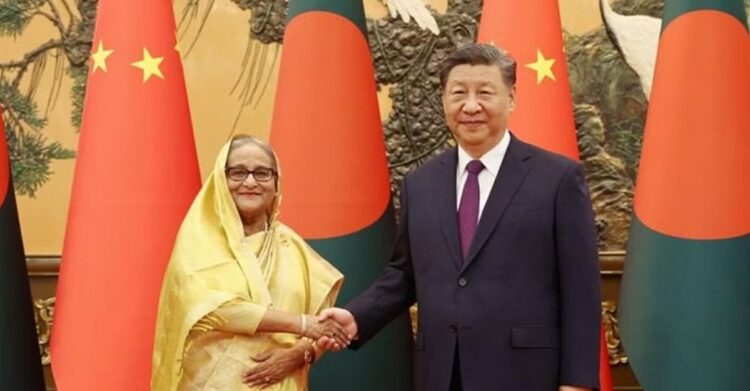As the widespread protests between demonstrators and security forces over government job Quota in Bangladesh escalate into violent clashes, it is being highly speculated that China and its puppet Pakistan are behind the unrest.
Notably, Bangladesh PM Sheikh Hasina cut her official visit to Beijing short on July 7, 2024, due to two significant grievances: China’s broken financial promises and its controversial policy proposals. Initially promised a $5 billion loan, Hasina was dismayed to receive only $100 million.
More troubling was China’s proposal for a ten-year re-education policy aimed at countering Islamic culture in Bangladesh, mirroring the controversial approach adopted by Pakistan in 2010. This proposal, deemed culturally invasive and offensive, prompted Hasina to return to Dhaka a day ahead of schedule.
Compounding Bangladesh’s turmoil is the recent reinstatement of a job reservation quota for families of 1971 war veterans. This quota, abolished in 2018, was reintroduced following a court order, sparking violent protests that have claimed over 100 lives. The protests highlight severe discontent over the discriminatory nature of the quota system, which exacerbates high unemployment and inflation.
The Bangladesh government has imposed a nationwide curfew and deployed military forces to quell the unrest, which demands an end to the quota system and advocates for merit-based employment.
China’s involvement in these disturbances is multifaceted. Through educational and student exchange programs, Chinese universities in Yunnan province have infiltrated Bangladeshi universities, cultivating intelligence assets and funding student movements. This infiltration has fueled anti-government sentiments among students, who are manipulated to align with Chinese interests.
Furthermore, Chinese-backed protests, like the one organized on April 13, 2021, in Dhaka Press Club, reveal Beijing’s direct role in orchestrating unrest. Collaborations between Pakistani and Bangladeshi student unions, facilitated by Pakistan’s ISI, further destabilize the region.
The influence of Chinese funds and Pakistani intelligence agency ISI, in mobilizing protests underscores a troubling pattern of external interference aimed at weakening Bangladesh’s internal stability. As Bangladesh grapples with these compounded crises, the need for a robust response to foreign meddling and internal discontent becomes increasingly urgent.

















Comments